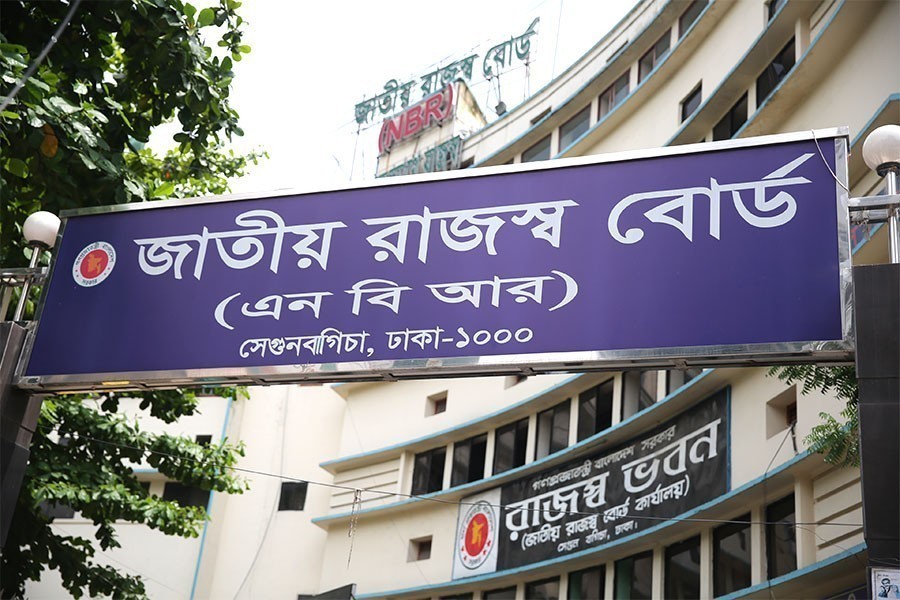Overlapping of Asycuda system with NSW project features detected

Published :
Updated :

A comparative study of the National Board of Revenue (NBR) found that the existing Asycuda World (AW) system already developed major connectivity features - planned for the Tk 5.85-billion National Single Window (NSW) project.
The NSW and the AW have a number of overlapping modules that may cause duplication of the similar system.
Most of the government entities, other regulators, off-docks, stakeholders, and customs houses are already connected under the AW system, while the NSW project also has major goal to establish connectivity.
To address the overlapping issue, the Internal Resources Division (IRD) under the Ministry of Finance held a virtual meeting of the Project Steering Committee on Monday, presided by IRD Senior Secretary and NBR Chairman Abu Hena Md Rahmatul Muneem.
In the meeting, way-outs to avoid the overlapping, extension of the project, and saving its cost and time were discussed.
According to a report of the NBR Asycuda team, the Asycuda World has set up connectivity with six customs houses, 13 land customs stations, customs bond commissionerates, and all the private inland container depots.
The NBR also found implementation of the AW less costly compared to that of the NSW. From 1993-2021, total expenses to the UNCTAD was around Tk 500 million, as the software is free-of-cost, whereas the NSW solution will cost Tk 3.0 billion, the report said.
According to it, the Asycuda has implemented a number of modules that also exist in the NSW.
The modules are: export general manifest, statistics and report management system, warehouse stock management, accounting of duties and taxes, risk assessment and selectivity, BSTI and BRTA module, e-payment module, customs declaration processing, cargo declaration management (Manifest), electronic LC, EXP integration with the Bangladesh Bank (BB), and customs tariff management.
The Asycuda has also developed some modules to implement, including transit module, customs valuation, e-UD modules for BGMEA, BEPZA and BEZA for IP and EP, plant quarantine for IP and NOC, e-auction, OTP (one time password), data archiving module, IATA cargo module for air manifest, and de-minimis for express courier.
More than 90 countries implemented the Asycuda as customs system, and 15 countries implemented the Asycuda World SW. The countries are: Jordan, Zimbabwe, Kazakhstan, Turkmenistan, Jamaica, Uganda, Rwanda, Vanuatu, Timor-Leste, Comoros, Burundi, and Grenada.
However, the NSW has interfaced with Asycuda World in Nepal, Benin, Cambodia, and Georgia.
In the report, the customs authority expressed doubt over capacity of the solution provider's experience in implementing in other countries.
The NBR report said all of the stakeholders including clearing and forwarding agents, shipping agents, freight forwarders, port authority, Bangladesh Navy, BB and other commercial banks are already familiar with AW.
Some 5,000 users already got training on the AW. In 1994, live operation of the Asycuda Version 2 took place in Dhaka Customs House, and in 1995 in Chittagong Customs House.
In 1999, it was upgraded once and in 2002 the Asycuda++ was implemented in Kamalapur Inland Container Depot, Dhaka Customs House, Chittagong Customs House, Chittagong Export Processing Zone, and Benapole Customs House etc.
The NBR introduced the AW in 2013.
On the other hand, the NSW, launched in 2019, aims to expedite export-import trade and movement of transit goods as well as check duty evasion.
Of the total project cost, the World Bank will provide the major part amounting to Tk 5.29 billion, while Tk 561 million will be spent from the government's coffer.
In August 2018, the NBR signed a memorandum of understanding (MoU) with 38 departments and entities to implement the NSW.
Officials said the NSW project has a number of modern components to enhance trade operations by eliminating paperwork and reducing time through maintaining up-to-date information.
Its goal was to benefit 319,000 Bangladeshi traders by reducing time and cost of trading in the fifth year of operation.
Bangladesh submitted its WTO TFA (World Trade Organisation Trade Facilitation Agreement) instrument of ratification in September 2016, with which it committed to implement 37 measures of facilitating legitimate trade.


 For all latest news, follow The Financial Express Google News channel.
For all latest news, follow The Financial Express Google News channel.